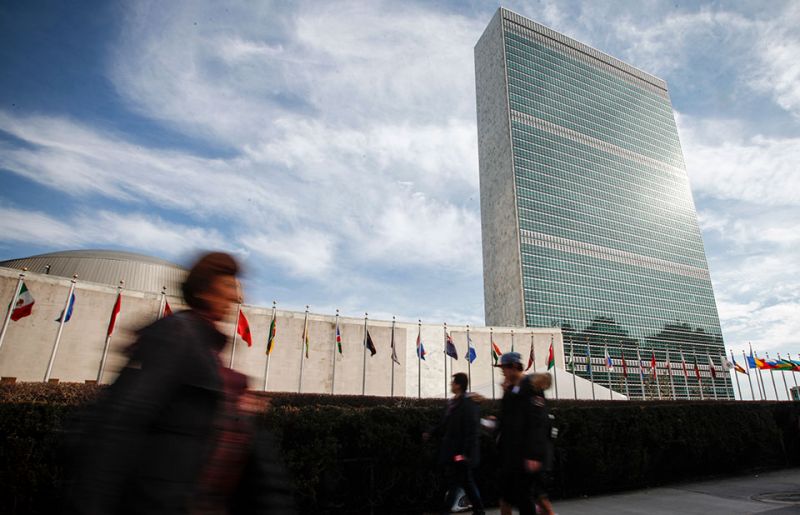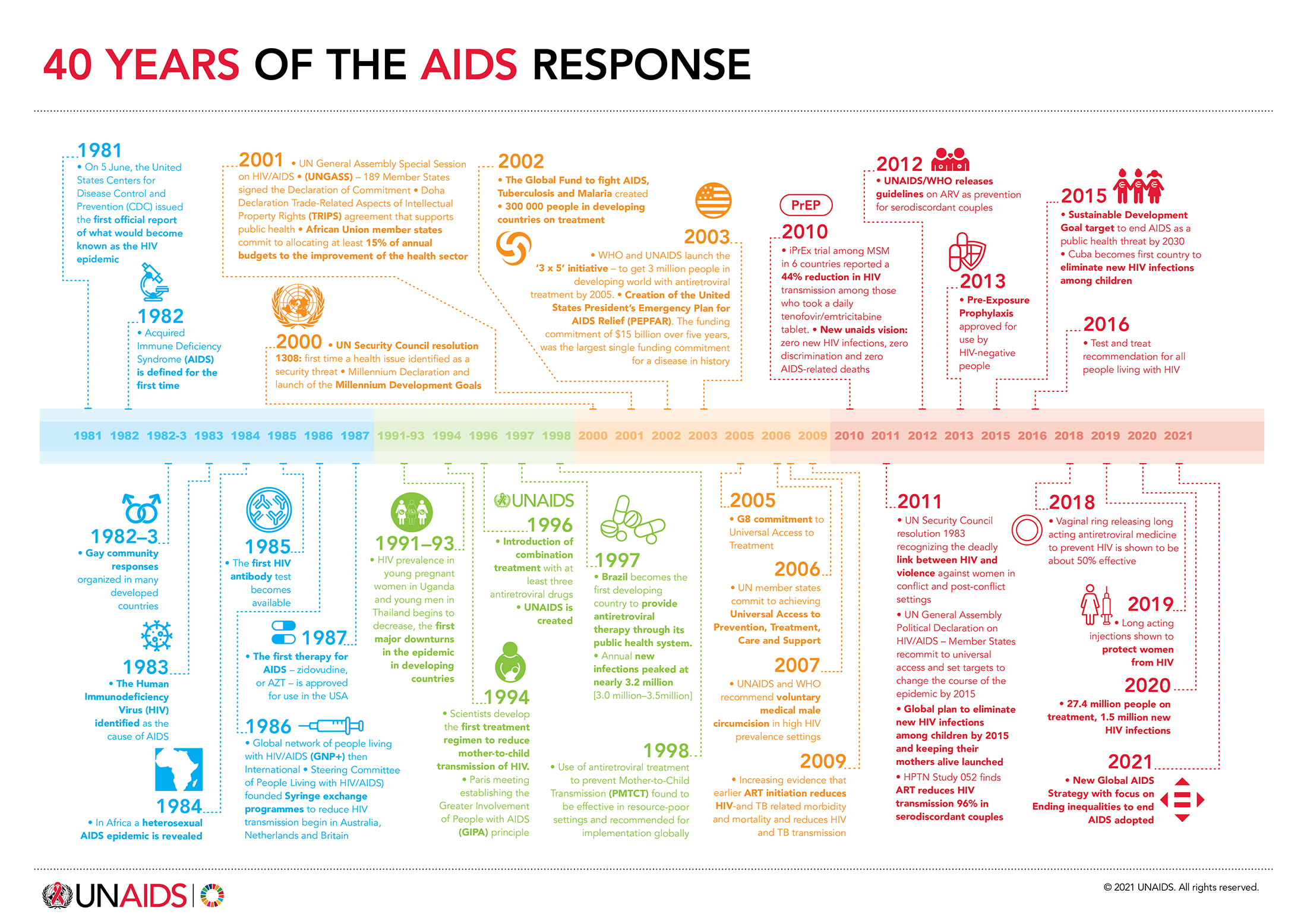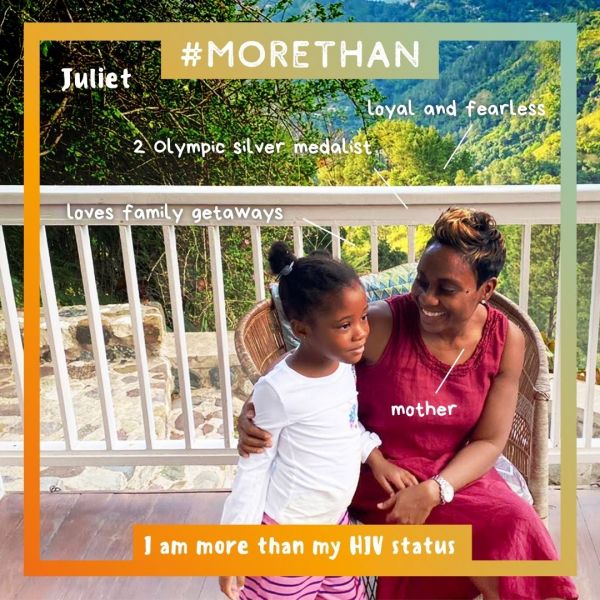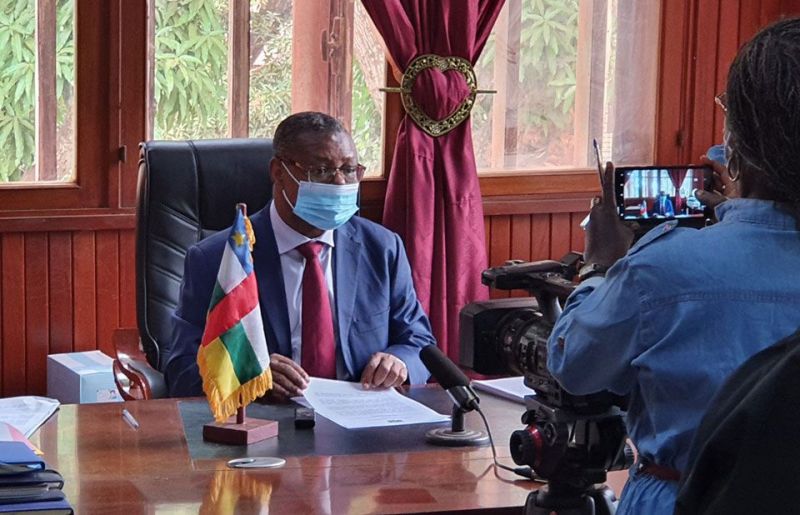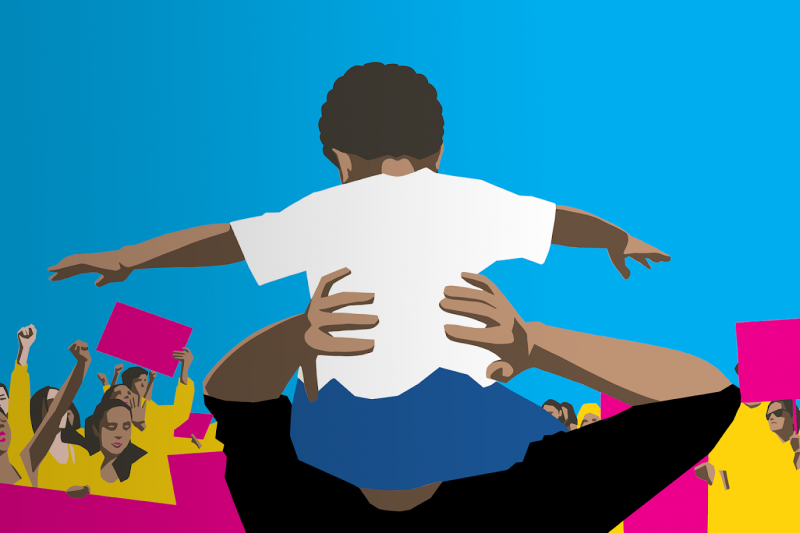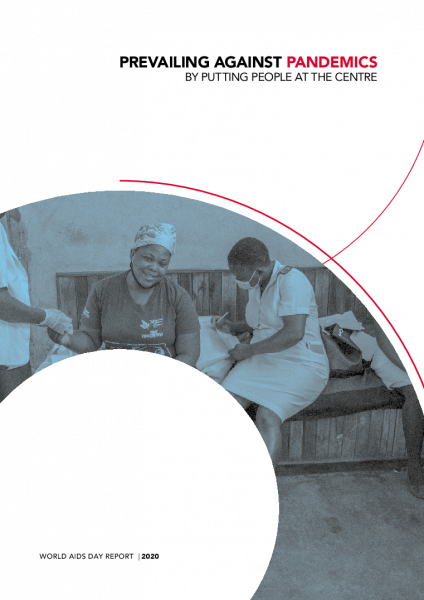The recent regional launch of the global AIDS report 2020, Prevailing against pandemics by putting people at the centre, in eastern Europe and central Asia provided a platform for the proposal of a joint revision of social and legal enablers in the region to achieve the proposed 2025 targets. UNAIDS Cosponsors, governments and civil society partners presented their views on the issue and the joint action to be taken.
Based on the regional data, the 90–90–90 treatment cascade in the region is far off the targets, having reached only 70–44–41. Lev Zohrabyan, the UNAIDS Strategic Information Adviser for Eastern Europe and Central Asia, noted that one of the reasons for this is late diagnosis: in 2019, 53% of all new HIV cases in the region were registered in the later stages. In his opinion, it shows that testing strategies need revision and require enabling societal conditions.
Societal and service enablers have been given prominence in the proposed 2025 targets; in particular, it is outlined in the 10–10–10 targets that:
- Less than 10% of countries have punitive legal and policy environments that deny access to justice.
- Less than 10% of people living with HIV and key populations experience stigma and discrimination.
- Less than 10% of women, girls, people living with HIV and key populations experience gender inequality and violence.
Achieving these goals includes having enabling laws, policies and public education campaigns that dispel the stigma and discrimination that still surrounds HIV, empower women and girls to claim their sexual and reproductive health and rights and end the marginalization of people at higher risk of HIV infection.
“Interventions in these areas create conditions for people to be more active in HIV testing, seek help and start antiretroviral therapy immediately upon diagnosis, adhere to a treatment regimen or proactively seek HIV prevention services, including pre-exposure prophylaxis,” said Mr Zohrabyan.
Rosemary Kumwenda, the Regional HIV/Health Team Leader at the United Nations Development Programme Istanbul Regional Hub, presented an analysis of the legislation in the eastern Europe and central Asia region on the criminalization of HIV and key populations, noting that the situation in the region remains unfavourable for an effective HIV response. The criminal codes have changed in many countries, but discriminatory laws are changing very slowly. Although many countries revisited their legislation regarding HIV exposure, HIV transmission is criminalized in virtually every country in the region. The Russian Federation and Belarus remain “leaders” in the criminalization of HIV and key populations. Criminal penalties for sex between adult men remain in Uzbekistan and Turkmenistan. The biggest challenge for the region, where more than 48% of new HIV cases are among people who inject drugs, is the criminalization of drug use and possession.
In the presentation An Inventory of Existing Tools for Creating a Favourable Social and Legal Environment in the Eastern Europe and Central Asia Region, given by Tatiana Deshko, the Director of the Department of International Programs, ICF Alliance for Public Health, Ukraine, the ReACT mechanism, which comprehensively works for the rights of key populations, was presented. ReACT (Rights, Evidence, Actions) is the programme’s principle for monitoring violations of rights and is being implemented in 37 cities in seven countries of the region with the support of the Global Fund to Fight AIDS, Tuberculosis and Malaria (Global Fund). Cases of rights violation are registered in a mobile application and then lawyers work with specific cases at the individual level or at the system level of revising legislation. Last year, about 2000 cases were registered. The analysis shows that law enforcement agencies are the primary violators of the rights of key populations in almost all countries, using threats, intimidation, illegal detention and abuse of authority. The health-care system, with denials of medical services, discrimination based on HIV status or disclosure of HIV status, is ranked after law enforcement. “Strategic analysis of cases based on the ReACT-collected data allows not only help for specific people to protect their rights but also formulating recommendations for revising legislation in countries,” said Ms Deshko.
As part of the discussion of the second 10, Alexandra Volgina, the Manager of the Global Partnership for Action to Eliminate All Forms of HIV-Related Stigma and Discrimination, Global Network of People Living with HIV, spoke about the People Living with HIV Stigma Index 2.0 study and the role of the Global Partnership for Action to Eliminate All Forms of HIV-Related Stigma and Discrimination.
Four countries of the region, Kazakhstan, Kyrgyzstan, the Republic of Moldova and Ukraine, have entered the Global Partnership for Action to Eliminate All Forms of HIV-Related Stigma and Discrimination. “If we compile the ReACT system, the Stigma Index and other instruments you’ll get a clear picture of what exactly needs to be done to make a difference. We need to address this issue jointly, all partners together. If we change the situation in the area of stigma and discrimination, we will be able to stop the epidemic,” said Ms Volgina.
An example of such an integrated approach, from data to policies and action, was shared by Evghenii A. Golosceapov, a member of the Equality Council in the Republic of Moldova, the first state institution in the post-Soviet countries dealing with discrimination against various groups.
As part of the Equality Council’s work, studies on the People Living with HIV Stigma Index were carried out, where, through public opinion polls and in-depth interviews, categories of people who are marginalized by society were determined. People living with HIV ranked the second among those categories, after lesbian, gay, bisexual, transgender and intersex people. The Equality Council also uses data from the People Living with HIV Stigma Index, the ReACT registration system and research on the legal environment on HIV.
On this comprehensive basis, more than 70 recommendations on practical steps in the field of legislative changes were developed. These data were used to develop a new national HIV programme and a country proposal to the Global Fund. In addition, the Equality Council considers specific cases of discrimination and complaints (e.g. dismissal due to HIV status) and supports civil society organizations in defending the rights in court. In recent years, the restriction on artificial insemination for people living with HIV has been lifted in the Republic of Moldova, as well as the ban on adoption and guardianship.
All the data collected shape the Roadmap for the Elimination of Discrimination, a government programme in which people living with HIV play a critical role. In the Republic of Moldova, the ScorCard system has also been launched, which allows real-time tracking of the implementation of recommendations and progress towards the adopted targets in reducing stigma and discrimination.
Regional gender gaps in the context of the HIV response were presented by Enkhtsetseg Miyegombo, a Programme Specialist at the UN Women Europe and Central Asia Regional Office.
According to her, the COVID-19 pandemic has largely erased progress in this area and exacerbated existing inequalities: lockdowns disproportionately affected the workload of women who do unpaid domestic work, reduced women’s economic opportunities due to job losses, limited their mobility and increased documented violence against women. These new circumstances were superimposed on existing problems—a lack of awareness about HIV, barriers to discussing safer sex with a partner, revival of patriarchal stereotypes, religious restrictions—as a result of which, women find themselves under growing pressure. Ms Miyegombo highlighted that investment in gender equality programmes is critical to the effectiveness of the regional HIV response.
A study conducted by the Eurasian Women’s Network on AIDS helped to identify the key characteristics of violence and the specifics of organizing assistance to victims of violence in 12 countries of the eastern Europe and central Asia region. The results of the study supplemented the available international data on violence and equipped national civil society organizations with real facts for political advocacy. Elena Rastokina, a specialist in advocacy and community mobilization from the Almaty Model of HIV Epidemic Control project in Kazakhstan, presented successful practices of community-based monitoring in the eastern Europe and central Asia region, concluding that this approach is important as it allows communities to know their rights and barriers and to have systematic data to advocate for systematic change.
Alexander Goliusov, the Director, a.i., of the UNAIDS Regional Support Team for Eastern Europe and Central Asia, stressed that the new 10–10–10 targets are addressing the inequalities that are fuelling the spread of HIV, COVID-19 and other pandemics. “Testing and treatment remain our priorities; however, now our fast track to them lies in combatting inequalities,” he said.
The recording of the launch in Russian and English, along with all presentations and materials, can be found here.



